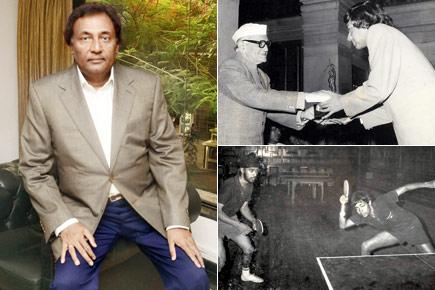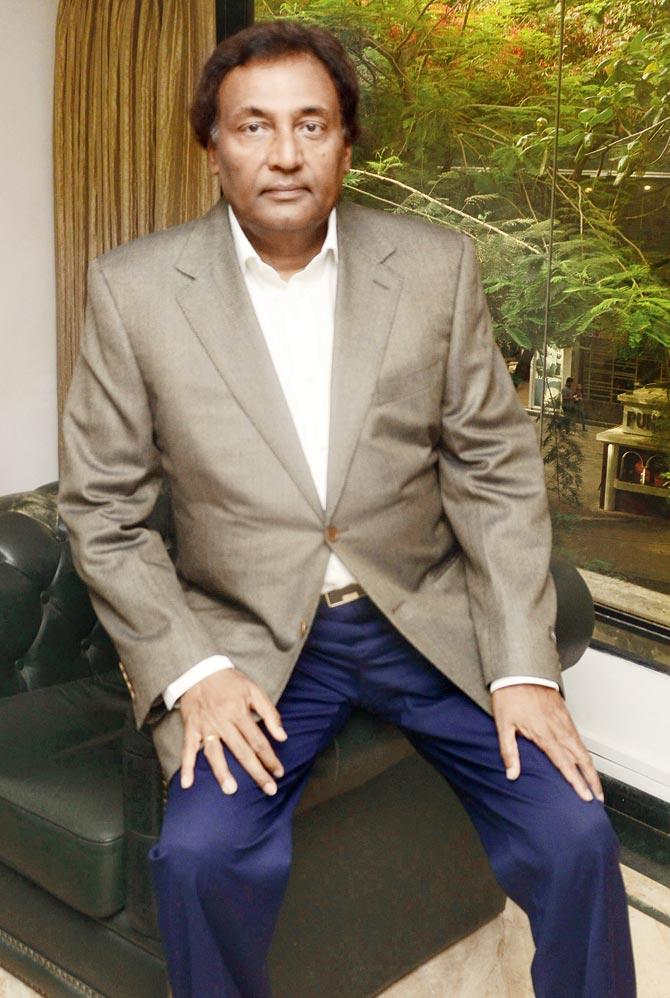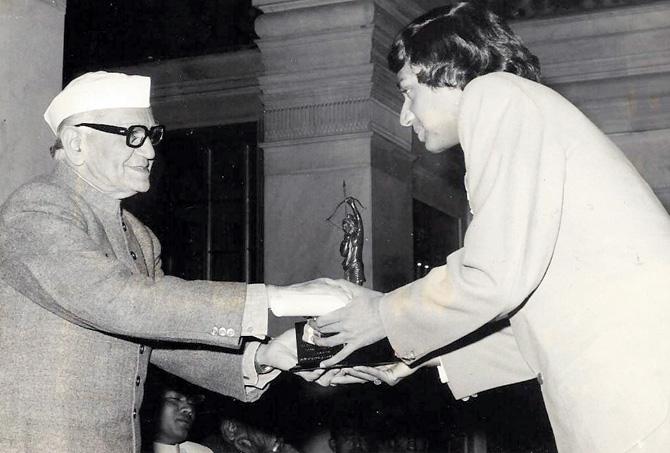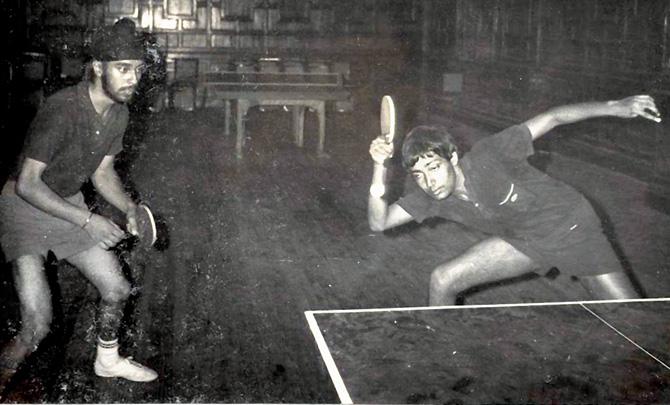As India forms UTT, the world's first franchise in table tennis, co-promoter and former national champion Niraj Bajaj tells us what future the game holds in the country


Niraj Bajaj
ADVERTISEMENT
Three-time national table tennis champion Niraj Bajaj was just 22 years old when he retired from the game in 1977. It came as a shocker to the fraternity, and also to his own family. Bajaj, however, was clear that he wanted to join the family business, as "table tennis was never going to be a lifetime pursuit". However, he always wanted to give back to the game. It's rare that a world class sportsman was created in a family of industrialists. "Creating a sportsman requires blood, sweat and sacrifice — it doesn't happen easily in families where you are born with a silver spoon. I was lucky to have memorable moments captaining the Indian team," says the 63-year-old promoter-director of Bajaj Group, who has been roped in by 11Even sports as co-promoter to launch Ultimate Table Tennis (UTT), the first table tennis franchise of its kind in the world. The league comprises 48 players from India and around the world, divided into six teams.

Niraj Bajaj receiving the Arjuna Award in 1974
The league kicks in on July 13 and matches will be played in Chennai, Delhi and Mumbai. "UTT is a dream come true for me and it's a historic chapter for Indian table tennis. In the world table tennis calendar, they have earmarked these three weeks of the league as a period for international players to participate in. Something like this has never happened before in the field of table tennis," Bajaj says. While sports franchises in India have written several success stories in the past, for UTT, right now, the commercial returns are not a primary concern. The tickets, for one, are priced at zero. "At this point we want to draw the audiences to the game. The idea is to create a level playing field for our athletes. We are thinking the Olympics of 2024, where we should be among the top 10 medal scorers. The league is only a stepping stone, an event that will give our athletes a chance to mingle with foreign players, coaches and learn from them. We also want to give the world's top players an experience that makes them want to return to India," he says.

Niraj Bajaj and Manjit Dua in action at the Asian Championship, 1975
Bajaj who was initiated into the game quite by accident, went on to play world championships at the age of 15. "There was a table-tennis table at home. I was drawn towards it, but my elder brothers, sensing my interest, would try to bully me into running errands for them, in exchange for which they'd allow me to play. That is how it all began. I must have been no more than seven at the time," he recalls.
While in his hey days Bajaj would play for a packed house of over 30,000 people, we ask him if currently, there is an audience for the sport in India strong enough to make it a league sport. "It's a very popular game and the truth is, everyone has played it at some point, even if it was on their dining table. It's easy to understand, unlike say chess or fencing. So, yes, we believe there definitely is an audience. And, if telecast in style, it can be a worthy experience for viewers. In my days, I remember playing to a full house," says Bajaj who won the Arjuna Award at the age of 17. The games will be telecast live from 7 pm to 10.30 pm daily. "The timing is suitable for people to catch the game after work hours, be it in the stadium or on television," he adds. Talks are on with celebrities to popularise the league and as formal announcements are awaited, we are told most of them have come on board, for free. "We just need to create the right buzz. It's a first time for everyone. I want to compliment Vita Dani, Kamlesh Mehta and the whole team that has worked hard for the last two years to bring UTT to India."
While the league is giving him a high, he's slightly saddened that he'll soon lose his table-tennis partner. "Nowadays, I only play at home for fun with my son Nirav. But in two months, he leaves for Harvard Business School," he says with a bittersweet sigh.
 Subscribe today by clicking the link and stay updated with the latest news!" Click here!
Subscribe today by clicking the link and stay updated with the latest news!" Click here!






